News feature, April 9, 2008
Trek and LeMond at loggerheads
Two major figures in American cycling are heading to court it seems in a split that could shed light on some of cycling's darkest secrets. Gerard Knapp reviews the state of play as Trek makes its move after the three-time winner of the Tour de France, Greg LeMond, re-opened old wounds with a summons issued against Trek last month.
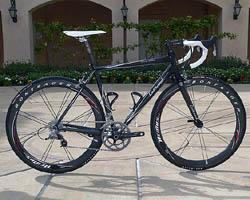
|
One of cycling's more uncomfortable business relationships, that of Greg LeMond and the Trek Bicycle Corporation, has seemingly been irreparably damaged following the announcement by Trek that it is seeking to immediately sever its relationship with the three-time winner of the Tour de France.
Since 1995, Trek has licensed the LeMond 'brand' and produced a range of bicycles carrying the 'LeMond' name. The brand enjoyed spectacular growth in its early years and was usually proudly promoted as a key Trek brand. However, at a staff meeting on April 8, 2008, Trek CEO John Burke announced that Trek had filed a suit in the Federal Court in Madison, Wisconsin, alleging breach of contract by LeMond.
The Trek action is a response to a summons lodged in the State of Minnesota that was issued to Trek HQ on March 20, 2008, by LeMond's law firm. LeMond will be asking the Minnesota court to rule that his company is not in breach of its agreement with Trek, and in fact, Trek is in breach of its agreement. LeMond is also seeking an injunction requiring Trek to uphold the licensing agreement, and that LeMond is seeking damages from Trek for the alleged breach of contract.
Interestingly, LeMond did not make this summons publicly available - that has been done by Trek on its own website.
The LeMond summons includes allegations that Trek didn't market and support his brand of bicycles within the terms outlined in their licensing agreement.
The Armstrong connection

|
Further, the summons references Trek's reactions to LeMond's public statements about alleged doping practices in cycling in general, as well as well as his comments about Lance Armstrong's relationship with the disgraced Italian sports doctor Michele Ferrari and further, LeMond alleges that Trek's strong association with and support of Armstrong directly affected his relationship with Trek.
LeMond believes his public anti-doping statements helped to improve cycling's reputation and did not harm Trek. However, the company counters; "Greg LeMond has done and said things that have damaged the LeMond brand and the Trek brand as a whole," Burke said.
It would appear that the LeMond-Trek relationship hit its first major pothole with LeMond's famous 'greatest comeback ... or greatest fraud' comment in 2001 about Armstrong, and then further impacted when more comments by LeMond about Armstrong were made public.
"We're sorry it has come to this after a long relationship," Burke said in a statement. "A troubling pattern of business dealings has forced us to make this decision. We made it for the Trek family, employees and customers. Greg's actions are inconsistent with our values. We are disappointed."
Trek held a tele-conference with invited journalists following the staff meeting, and counsel for Trek, Ralph Webber, said; "his (LeMond's) filing now includes unrelated statements on Mitchell report (USA investigation into alleged doping in baseball). Of all his statements, very few are related to the license agreement with Trek and LeMond. Mr LeMond's complaint is filled with complaints immaterial to the business agreement."
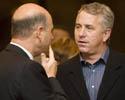
|
Webber said; "It was Greg's choice to commence a lawsuit after private meeting between Greg and John (Burke, Trek CEO). John offered quiet negotiation and Greg chose to put it into litigation."
Bob Burnes, general counsel for Trek, added; "We tried to let this relationship expire. Greg LeMond has forced our hand and we wish it were not the case." When asked about the Armstrong connection, he replied; "Lance Armstrong does not have a brand. He is an athlete and spokesperson for Trek. [It's understood that Armstrong owns <1% of Trek shares. Ed]."
Burke denied Armstrong was directly involved in the latest litigation by Trek. "If you look at the speech I gave this morning, we'd make our best effort with LeMond brand, and Greg would come out with comments that would hurt us, and we'd invest more to the brand, and we'd run into the same pattern over and over again," Burke said.
"The (licensing) contract (with LeMond) was to end in 2010 and we were to give notice in September coming up [2008]. I let him know personally that we would not be renewing beyond 2010. I let him know personally we would help him out with transition, but he chose a different plan," Burke said.
LeMond to reply, wants injunction for Trek to continue
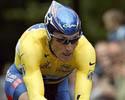
|
Following on from the Trek announcement, LeMond responded via his lawyer. "Trek's spectacle today is a move to distract from the real allegations that are contained in Mr. LeMond's lawsuit against Trek," said Denise Rahne, a representative of Robins, Kaplan, Miller & Ciresi, LeMond's law firm that issued a summons to Trek.
"Mr LeMond served Trek with a lawsuit in March. Mr. LeMond stands by his complaint. The allegations, which Trek has elected to make public, speak for themselves. Mr. LeMond has been and continues to be an outspoken critic of doping in professional cycling, which should be consistent with what Trek touts as 'family values.' Mr. LeMond looks forward to proving his allegations in court, not in the media, despite the many inflammatory and inaccurate statements that Trek made today."
It is expected that LeMond will make a more detailed response to Trek's action. Interestingly, one of the requests in the LeMond summons is an injunction that requires Trek to maintain their existing relationship.
As part of its response, the Wisconsin-based manufacturer has posted a number of PDFs to its website, including the full summons as issued by LeMond's firm. This document (see the full document here) covers the history of LeMond's relationship with Trek and includes many references to alleged doping, specifically quoting from the book "LA Confidentiel: Les Secrets de Lance Armstrong", written by David Walsh of The Sunday Times newspaper.
These references to Armstrong are found in Section II of the summons, titled "Lance Armstrong, Trek, and problems with doping in cycling". From paragraphs 53 to 66, the summons provides a detailed review of some of cycling's biggest doping controversies since the 1998 Tour de France, including the Armstrong so-called 'positive' at the 1999 Tour de France; claims of an alleged payoff; as well as claims by then riders of the US Postal Service admitting to using doping products.
While the references to doping and LeMond's comments on Armstrong would not seem immediately relevant to a business relationship, it is alleged by LeMond that the publication of these comments led to a souring of relations between LeMond and Trek.
Fair comment, or damaging to the brand?
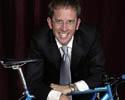
|
While Trek representatives commented that much of LeMond's summons is not related to the business relationship, it is LeMond's general assertion that his comments about doping are what led to Trek's alleged gradual withdrawal of support of the LeMond brand of bicycles, and that he alleges this constitutes material breaches of their licensing agreement.
With that consideration, much of LeMond's summons is indeed a review of his comments on doping, and the background, justification and claimed support or verification of his comments, and his right to make those comments.
The summons says; "Since 2001, Trek has systematically sought to silence Mr LeMond's right to make comments that constitute an informed and honest opinion on matters of legitimate public interest ... Mr LeMond's comments, as evidenced by recent revelations, public discourse, and Congressional activity, were ahead of the times."
The LeMond summons covers several major doping controversies, including the background machinations that led to LeMond's withdrawal of his comments against Armstrong in 2001. This matter has been reported in "From Lance to Landis", another book written by Irish journalist, Walsh.
It would appear that the key clause of the LeMond and Trek licensing agreement that will be debated is Section 13.02.01, called the "Moral Turpitude Section". This allows Trek to terminate the Agreement before the primary term expires if LeMond Cycling (his company) or LeMond himself "takes any action which damages or has an adverse impact upon [Trek] or [Trek's] business or goodwill", or if LeMond were to be "convicted of a felony involving moral turpitude or gross dishonesty".
In the Trek statement issued April 8, Burke said; "For years, Trek has tried our best to make this relationship work. And for years, Greg LeMond has done and said things that have damaged the LeMond brand and the Trek brand as a whole.
"His actions are inconsistent with our values," Burke continued, "values we believe in and live everyday. And after years of trying to make it work, we are done. It's time to sever this relationship."
History of tension
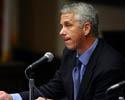
|
In his summons, LeMond provides a detailed review of the events in 2001 that followed the retraction of his statements about Armstrong. But LeMond alleges that he was pressured from all sides to retract his comments about Armstrong. After he made that retraction, it would seem the deal was back on track for the 2002 bike season, even if it's been subsequently reported that LeMond was very uncomfortable retracting his statement.
Then in 2004 LeMond spoke to a French newspaper, Le Monde, and following these comments - again about Armstrong - Trek claims it informed LeMond he was allegedly in breach of contract and asked him to seek a new licensing partner. LeMond countered in December 2004 with his own legal action against Trek "that would seriously damage Trek", the company said.
However, at a private meeting in April 2005 between LeMond and his wife, Kathy, and Trek CEO John Burke at LeMond's home in Minnesota, there was some kind of truce and Trek claims it invested heavily in the LeMond brand of bicycles for the 2006 season.
But in 2006 and 2007, LeMond again made comments to the press and by the end of 2007, Burke's patience had seemingly worn out, and in November last year he informed LeMond that Trek would not renew its licensing agreement that expires on September 30, 2010.
Indeed, it would appear the writing was on the wall for LeMond in August 2007, when he had to pay his own way to Trek's major USA dealer conference, and then he spent 40 minutes trying to find his branded bicycles anywhere in the major display (they were co-located with MTBs produced under the Fisher brand).
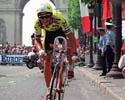
|
Burke's speech at that dealer conference did not include references to the LeMond brand, and afterwards LeMond alleges he was told by a brand manager at Trek that it had been an "intentional decision by Trek's upper management".
This brings matters up to the summons issued on March 20, 2008, by LeMond, where he is requesting "a jury trial on all counts so triable".
Those 'counts', to use legal parlance, refer to LeMond's "declatory" request that the Minnesota Court declare that LeMond has not breached his agreement with Trek, and the Trek has in fact breached the agreement.
The next "count" is an injunction, but in this case, to keep Trek to its agreement with LeMond maintaining the parties' existing business relationship, requiring Trek to continue to make and sell LeMond-branded bicycles.
The third count is "breach of contract", and here LeMond stands by all his previous comments about cycling and Armstrong, and that Trek has "failed" to uphold its contractual obligations that ... "has caused LeMond Cycling to lose revenue in an amount to be proven at trial".
Promoting the brand
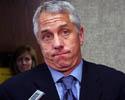
|
The LeMond legal team will need to show that Trek had begun, as LeMond alleges, "to unilaterally wind down the LeMond brand, despite contractual obligations that it exert best efforts to promote and market the brand ... Trek's effort to wind down the LeMond brand is the result of pressure from one or more third parties".
Conversely, Trek alleges that following publication of his comments, it received evidence that its dealers and customers were uncomfortable handling the LeMond brand, and that this further reflected on the Trek brand.
Therefore, it is LeMond's right to comment - and if those comments would constitute a breach of contract - that go to the heart of the case. LeMond argues in his summons that he is not prevented from making comments about the sport of cycling. "Prior to the inception of Trek's relationship with Mr Armstrong, Trek never suggested to Mr LeMond that he should not speak publicly about problems with the use of performance enhancing drugs in cycling".
It's expected that LeMond will make a detailed response to the Trek announcement and how it will proceed on both matters. For this business relationship, both cases are to be continued.
Photography
For a thumbnail gallery of these images, click here
Images by James Huang/Cyclingnews.com
- One of the bikes from Trek's LeMond range that is at the centre of the debate.
- Lance Armstrong and Trek CEO John Burke launch the company's new Madone last year.
Images by LeMond
- The LeMond brand supported Jonathan Vaughter's team in 2004. Vaughters is a former team-mate of Armstrong's and now runs Professional Continental outfit Team Slipstream.
Images by AFP Photo
- Former Tour de France winner Greg Lemond (R) talks with an old acquaintance, Alain Garnier (L) during a break at the World Anti-Doping Agency board meeting in 20 November 2006.
- Greg LeMond is no stranger to the court room in 2007 he testified at Floyd Landis' arbitration hearing.
- LeMond leaves the court room after testifying at Landis' hearing last year.
- Three time Tour de France winner Greg LeMond in action at the 1989 Tour.
Images by Jeff Tse
- Some of the comments at the centre of the summons relate to Lance Armstrong's success, including LeMond's famous "greatest comeback ... or greatest fraud" comment.

